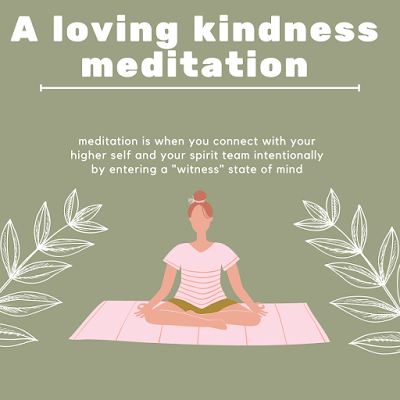What Are Meditation and Relaxation Techniques?
Meditation is a practice that involves focusing the mind on a particular thought, object, or activity to achieve a mentally clear and emotionally calm state. Relaxation techniques, on the other hand, involve methods designed to reduce stress and promote a peaceful mind. Together, they offer numerous mental and physical benefits, including stress reduction, improved focus, and better sleep.
Benefits of Meditation and Relaxation Techniques
- Reduces Stress: Meditation and relaxation techniques are known to lower cortisol levels, reducing stress.
- Improves Focus: Regular practice helps enhance concentration and mental clarity.
- Enhances Sleep Quality: Relaxation exercises can promote better sleep, which is crucial for good health.
- Promotes Emotional Health: These techniques are effective in alleviating anxiety and depressive symptoms.
Top Meditation Techniques for Beginners and Experienced Practitioners
1. Mindfulness Meditation
- Overview: Mindfulness meditation involves focusing on the present moment without judgment. It encourages awareness of one’s surroundings, thoughts, and emotions.
- How to Practice: Find a quiet space, sit comfortably, and focus on your breath. When your mind wanders, gently guide it back to the present.
- Benefits: Increases self-awareness, reduces negative emotions, and helps manage stress.
2. Guided Visualization
- Overview: This technique involves visualizing positive scenes or settings to relax the mind.
- How to Practice: Close your eyes, breathe deeply, and imagine a peaceful location, such as a beach or forest. Use a guided audio if available.
- Benefits: Great for reducing stress, it also enhances imagination and creativity.
3. Transcendental Meditation (TM)
- Overview: TM is a simple technique that involves silently repeating a mantra to settle the mind into a state of profound rest.
- How to Practice: Sit comfortably with your eyes closed, repeat a chosen mantra, and focus on your breathing. Practice for 20 minutes twice a day.
- Benefits: Improves focus, reduces stress, and increases overall mental clarity.
4. Loving-Kindness Meditation (Metta)
- Overview: This meditation fosters positive emotions towards oneself and others by mentally sending love and kindness.
- How to Practice: Start by sitting comfortably, focus on the phrase “May I be happy, may I be healthy, may I be safe,” and gradually extend these wishes to others.
- Benefits: Enhances empathy, reduces self-criticism, and promotes positive connections with others.
Popular Relaxation Techniques for Stress Relief
1. Deep Breathing Exercises
- Overview: Deep breathing helps control the body’s stress response by encouraging slow and deep breaths.
- How to Practice: Try the 4-7-8 technique: inhale for 4 seconds, hold for 7, exhale for 8.
- Benefits: Reduces anxiety, improves oxygen flow, and promotes relaxation.
2. Progressive Muscle Relaxation (PMR)
- Overview: PMR is a technique that involves tensing and relaxing various muscle groups.
- How to Practice: Start at your toes, tense each muscle group for 5 seconds, and then relax. Work your way up to your head.
- Benefits: Alleviates physical tension and improves body awareness.
3. Aromatherapy
- Overview: Using essential oils like lavender, chamomile, or eucalyptus can enhance relaxation.
- How to Practice: Diffuse essential oils in your room or apply them diluted to your skin.
- Benefits: Reduces stress, improves mood, and enhances sleep quality.
4. Listening to Calming Music
- Overview: Soothing music helps lower heart rate and blood pressure, creating a relaxing atmosphere.
- How to Practice: Choose calming sounds or nature music and listen for at least 15 minutes in a comfortable space.
- Benefits: Reduces anxiety, promotes relaxation, and can be used before bed to improve sleep.
5. Yoga Nidra (Yogic Sleep)
- Overview: Yoga Nidra is a guided meditation that helps you achieve deep relaxation.
- How to Practice: Lie down, close your eyes, and listen to a guided Yoga Nidra recording, which will take you through a series of relaxation cues.
- Benefits: Improves sleep quality, reduces tension, and enhances overall relaxation.
Combining Techniques for Maximum Relaxation
Using a combination of meditation and relaxation techniques can offer enhanced benefits. For example, pairing deep breathing with mindfulness meditation can increase the depth of relaxation and focus. Alternatively, adding aromatherapy to Yoga Nidra sessions may enhance the relaxation effects and improve the overall experience.
Tips for Effective Meditation and Relaxation Practices
- Create a Routine: Consistency is key to experiencing the full benefits of meditation and relaxation.
- Find a Comfortable Space: Choose a quiet, comfortable spot free from distractions.
- Start Small: Begin with short sessions (5–10 minutes) and gradually increase your time.
- Use Guided Sessions: Beginners may find guided audio or video sessions helpful.
- Be Patient: Meditation and relaxation are skills that develop over time, so stay patient and kind to yourself.
The Science Behind Meditation and Relaxation Techniques
Numerous studies have shown that meditation and relaxation practices can reduce the risk of chronic conditions, including hypertension and heart disease. They have also been linked to increased grey matter in the brain, which is associated with memory and emotion regulation. Additionally, research suggests that regular practice can lead to increased serotonin and dopamine levels, both known to improve mood and overall wellbeing.
How to Incorporate These Practices Into Your Daily Life
- Morning Routine: Start your day with 5–10 minutes of deep breathing or mindfulness meditation.
- During Breaks: Take short breaks throughout the day for progressive muscle relaxation.
- Evening Wind Down: End your day with guided visualization or Yoga Nidra to prepare for restful sleep.
- Use Apps and Resources: Popular apps like Headspace and Calm offer guided meditations and relaxation exercises.
Conclusion
Incorporating meditation and relaxation techniques into your routine can be a game-changer for your mental health and overall wellbeing. Whether you’re new to meditation or looking to expand your relaxation practices, these techniques offer a pathway to a calmer and more centered life. Begin with small steps, be consistent, and allow yourself to experience the many benefits that meditation and relaxation have to offer.




.png)

.jfif)




No comments:
Post a Comment